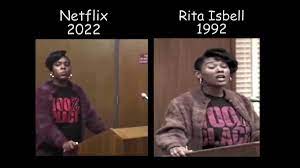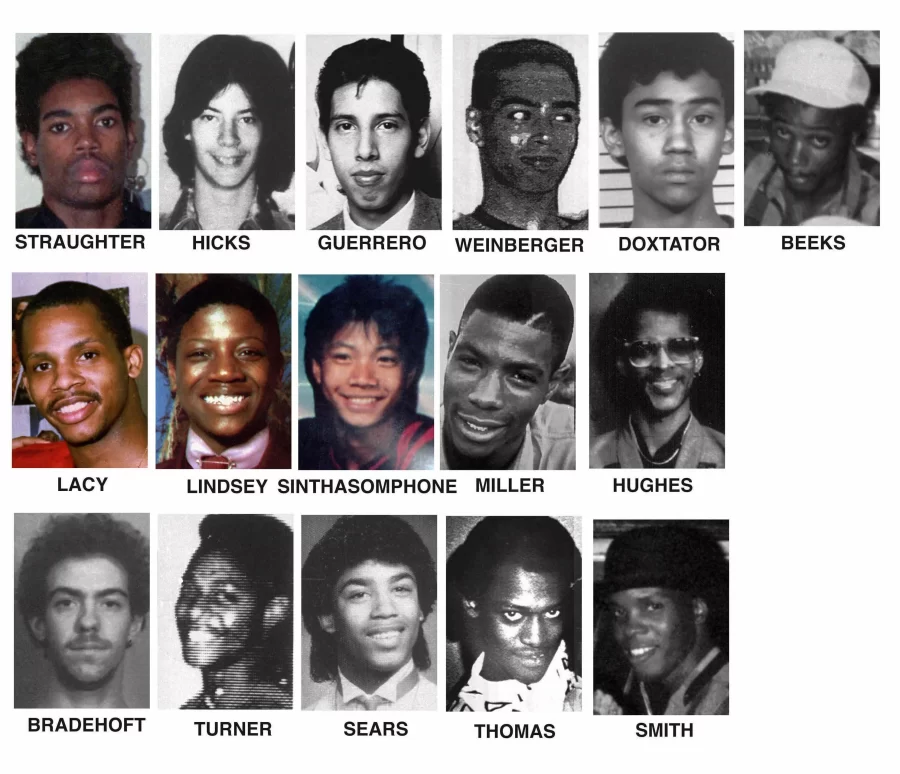The Story Told A Million Times
Why we should stop the retelling of Dahmer’s story.
October 24, 2022
Imagine the pain of being told that your missing sibling, parent, or child was a victim of a cannibalistic serial killer. Imagine the pain of having no body to bury and barely any remains to say goodbye, too. This was sadly the reality for 17 families in Milwaukee and most haven’t begun to heal from the damage that has been done to their family. In 1991, 14 young men, a 17 year old and two 14 year old children were brutally murdered by Jeffery Dahmer. Milwaukee was horrified as the story of what the murderer did was spread across the nation, his actions being idealized and even romanized. The new Netflix show, “Dahmer – Monster: The Jeffrey Dahmer Story” depicts the horrors of the serial killer who was finally caught and sentenced in 1992.
We shouldn’t be retelling and idealizing the actions of a madman and doing so is extremely disrespectful to the families and people who have suffered.
Rita Isbell, The sister of Errol Lindsey, speaks out on how hurtful and traumatizing this show was for her and her family. In the Netflix show’s 8th episode, Isbell is portrayed by an actress dressed the same way she did, repeating her victim’s impact statement nearly word for word. The worst part of it is, she wasn’t informed that they would be reenacting one of the most traumatizing moments of her life.

While it’s difficult to stop the retelling of such a popular story, the victims’ families should at least be compensated for it. Isbell told Insider in an interview that Netflix didn’t inform her or pay her for the reenactment of her courtroom outburst. Netflix is profiting off of the pain and suffering the Lindsey family and the other victims’ families went through. While the show has done it’s part in shedding a light on the incompetence of the police department, especially when it comes to black and P.O.C. families, it’s also adding to the pile of money Netflix already has. While no one has forgotten what’s happened, bringing it forward and reminding everyone in this way greatly affects the victims’ day to day lives. Even if they had chosen not to watch the show, now that it’s fresh in everyone’s minds, there is no doubt colleagues and maybe even random people on the street will be bringing it up to them. Some might even go as far to ask for a picture or a signature. People need to be reminded that this story isn’t a work of fiction, it’s a traumatizing event that has greatly scarred many people involved and it shouldn’t be glorified in this way.
The saddest part of it all is that this kind of reaction was most likely what Dahmer intended on happening when he relayed his life story to the police and many news networks. The attention that was brought to this story, not only now, but also in the 90s was unacceptable. The broadcast of his interviews and his story caused him to get lots of adoration and he even developed a fanbase who would send him letters and money in prison. A news article written in 1994 says that according to prison records, Dahmer received more than $12,000 from letter-writers around the world. This money was being used to buy cassettes, comics, and various other things to make his life in prison more comfortable. All Dahmer really wanted was attention and by making more television shows, movies, and books about him, we’re giving him exactly what he wanted. Even in death, he’s still tormenting these families and getting all the attention he’s ever wanted.
Many would argue that it’s progressive of us, as a community, to talk about and try to understand this murderers actions which is true, but should be done in a respectful way. This would be an extremely different conversation if the series focused more on the victims’ families and actually got their consent and compensated them, but they did not. Instead, this show has done nothing more than encouraged people to make cruel jokes about these grisly murders, torment these poor families for details, and actually encourage the romantization of a murderer, many on social media sites like TikTok calling him “attractive”. It’s disrespectful and disgusting to the victims who have lost their lives and their surviving family members.
We should not be romanticizing the actions of a murderer and if these stories continue to be retold the families should be properly compensated and we, as humans, should find a respectful way to show an interest in a terrible event without bothering and causing harm to the victims of the tragedy.
In honor of the following victims:
1978- Steven Hicks, 18
1987- Steven Tuomi, 24
1987- James Doxtator, 14
1988- Richard Guerrero, 25
1989- Anthony Sears, 26
1990- Raymond Smith (Ricky Beeks)
1990- Eddie Smith, 28
1990- Ernest Miller, 22
1990- David C. Thomas, 23
1991- Curtis Straughter, 17
1991- Errol Lindsey, 19
1991- Anthony “Tony” Hughes, 31
1991- Konerak Sinthasomphone, 14
1991- Matt Turner, 20
1991- Jeremiah Weinberger, 23
1991- Oliver Lacy, 23
1991- Joseph Bradehoft, 25

